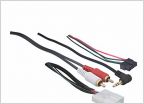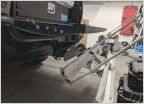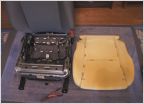-
Welcome to Tacoma World!
You are currently viewing as a guest! To get full-access, you need to register for a FREE account.
As a registered member, you’ll be able to:- Participate in all Tacoma discussion topics
- Communicate privately with other Tacoma owners from around the world
- Post your own photos in our Members Gallery
- Access all special features of the site
The great "octane" experiment
Discussion in '2nd Gen. Tacomas (2005-2015)' started by MaineYota, Jun 9, 2010.
Page 2 of 3
Page 2 of 3


 AC/Heater keeps going in n out. Motor
AC/Heater keeps going in n out. Motor Steering Wheel Volume control doesnt work
Steering Wheel Volume control doesnt work Bank 1 sensor 1 O2 sensor
Bank 1 sensor 1 O2 sensor Suggestions for trailer-hitch bike rack?
Suggestions for trailer-hitch bike rack? How much does is cost to replace the driver's side seat cushion?
How much does is cost to replace the driver's side seat cushion?